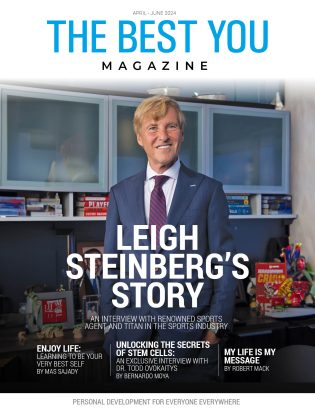Happiness expert Robert Holden talks to Bernardo Moya about feeling good, love and success, and the place they all come from
Robert Holden has his parents to thank for his becoming a leading light of the Positive Psychology movement. He was aware of the flipside of happiness early on.
His mother suffered depression which sometimes lasted for months and led to hospitalisation, while his father suffered from alcoholism.
“This somersaulted me forward into an enquiry about life,” he tells me.
“There I was as a teenager, asking big questions like: what is life for, do we have a purpose, is there a meaning, how can we live essentially a good life? ”
Holden’s first experience in helping people came in his work at his NHS Stressbusters Clinic in Birmingham. He soon realised there was a problem with the clinic’s focus – it was problem-oriented, focusing on unhappiness.
Soon, he started to look at what was missing from people’s lives, actively seeking to understand the positives. Doing so, meant “more and more conversations about happiness and about success and about love and about abundance,” he smiles.
“Rather than just talking about all the so-called negatives, we were now talking about all of the things that really matter.”
So, how does his approach differ from traditional psychological approaches to stress?
“I found that really psychology didn’t help change people’s psychology for the most part. We had some success but it was patchy. What I realised is that psychology is an effect and not just a cause; it’s the effect of your identity. In other words, we think according to the person we think we are. Our self-image, our sense of self is what governs our psychology.”
So what is the way out of being governed by our self-image?
“If you can change your mind about yourself, if you can understand yourself better, if you can recognise your strengths and your gifts, if you can recognise your innate value, if you can understand some of that – I consider that to be spiritual, by the way – then, automatically, your psychology upgrades itself because you have a better relationship with yourself. Ultimately,
I discovered that spirituality determines psychology, and your sense of identity determines your psychology.”
The message from this approach is clear:
“Work on who you are – and work on being even more of who you are, it’s one of my big messages.”
So, you don’t need to mend yourself?
“Absolutely. One of the big principles of my work is that most people don’t need more therapy; they just need more clarity, and what I mean by that is that we’re not really broken, any of us, but we are sometimes lacking in focus, sometimes we’ve got distracted, sometimes we’ve taken a wrong turn and actually when we just get clearer – clearer about who we are, clearer about what real success is, clearer about what real happiness is – that clarity actually helps us to handle our stress better.
Even better than that, it helps deliver a better life, a greater life, and to help us fulfill our purpose.”
Holden tells me there is no point “searching for happiness” in the conventional way.
“The approach doesn’t work because you get caught up in the act of searching, and don’t realise that restless searching is an expression of unhappiness.”
His approach is different. It is about shifting the whole paradigm.
“One of my big messages is that the key to happiness and the key to success isn’t changing yourself, it’s not re-inventing yourself, it’s actually daring to be even more of who you really are, it’s trusting that you are infused with gifts and talents and strengths, and that if you pay attention to yourself, you’ll recognise those gifts, talents and strengths more.”
“By recognising them more, you’ll have the confidence to express them more, to use them more and to work with them. Ultimately I think one of the great keys to success is to dare to be even more of who you are and that’s a big message of my work.”
Having worked and written a book with one of the personal development industry’s biggest names, Louise Hay, founder of Hay House,
Holden also spent time interviewing leading names as part of last year’s Hay House Summit – Doreen Virtue, Paul McKenna, Michael Neil and Mastin Kipp all shared their career insights, giving Holden a unique perspective of different influences. These have helped to reinforce his own view of the importance of happiness.
So, I ask, being happy and successful and more loved has a key ingredient – that you learn to be the best you? By connecting with your inner authenticity you become the best you can be?
He nods in agreement. “That’s something that I’ll definitely be talking about at the ‘The Best You Expo’.





